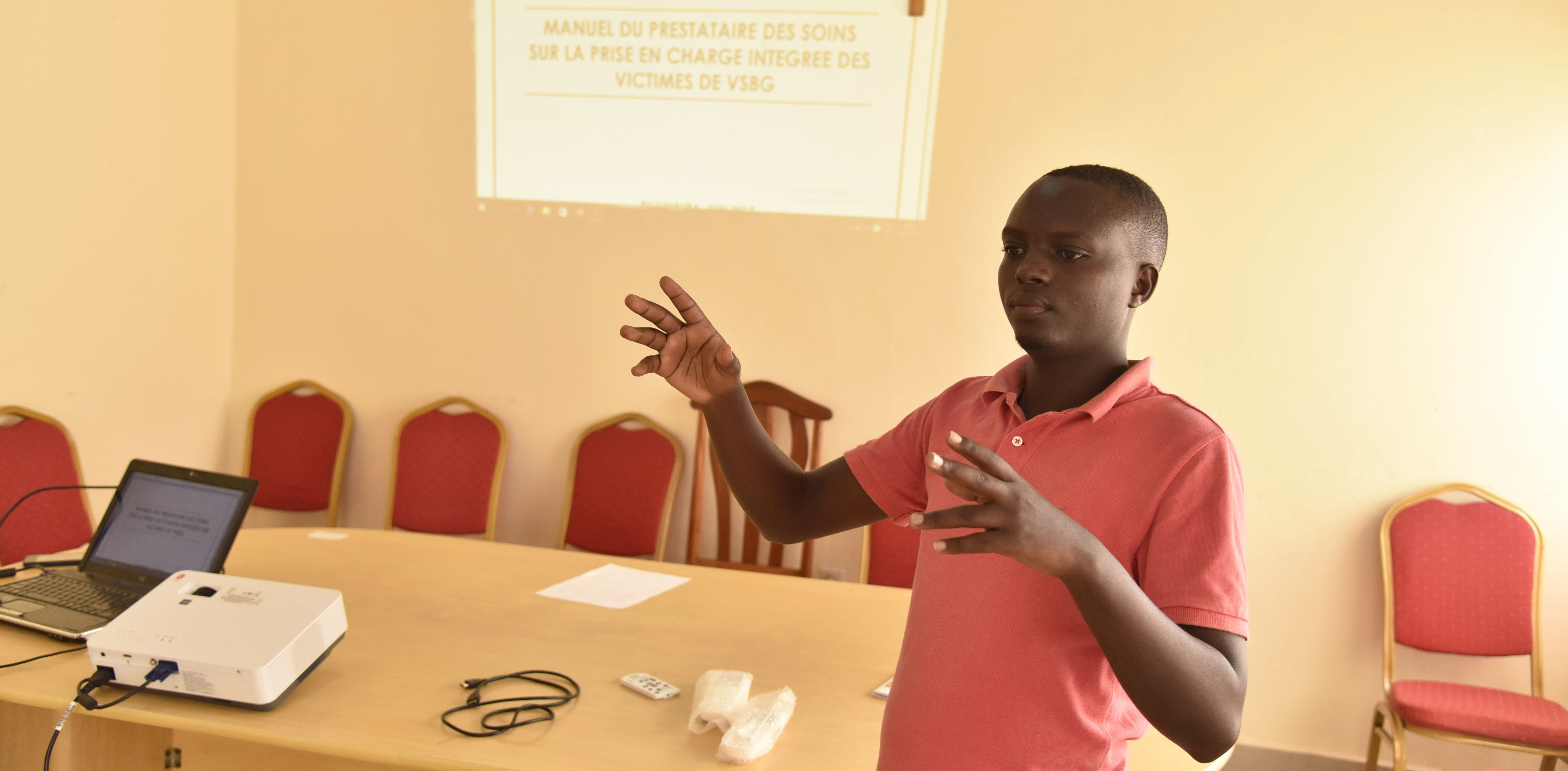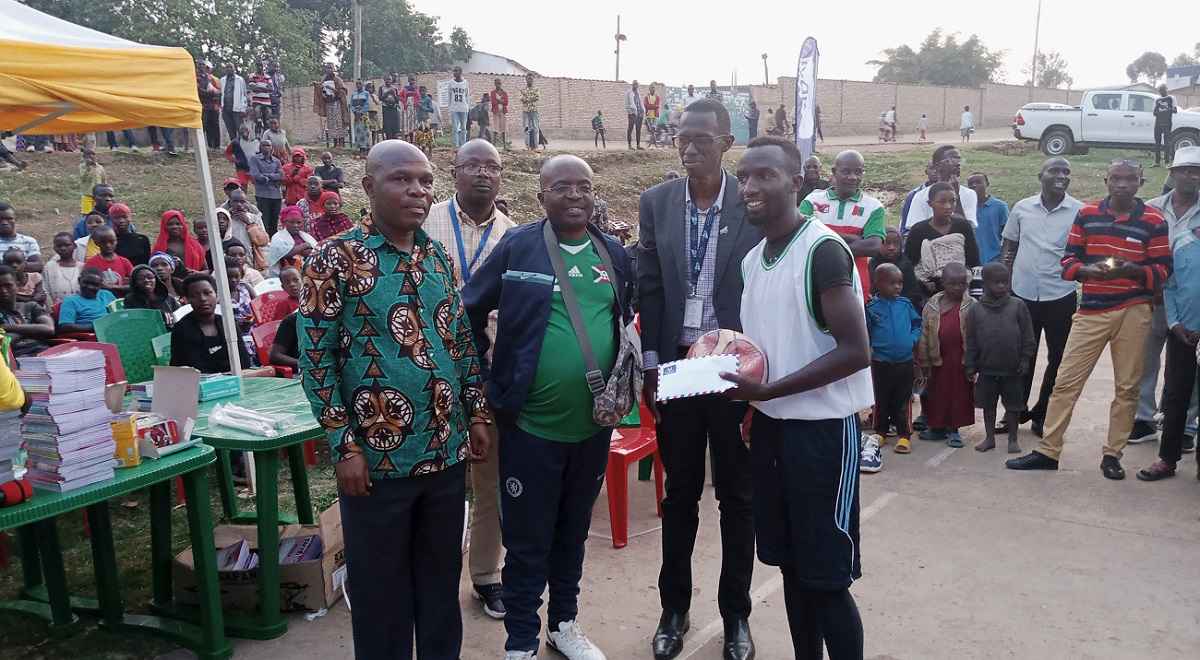
Gender-based violence (GBV) remains a reality in Burundi. Seruka center recorded more than 590 cases of rape up to June 2020. Providing good care for the victims of this violence would help to reduce the negative consequences relating to it.
FHI 360 in collaboration with SWAA-Burundi organized a training session on the integrated management of GBV victims for the different health facilities representatives in Bujumbura, in order to provide them adequate knowledge on the new method and tools to support GBV victims. A clinical form that health care providers have to fill out in the presence of a GBV victim has been set up in order to collect as much data as possible to help them.
In this context, a feedback session was held for the health care providers working at the SYM in order to share the knowledge acquired during this training on the management and support of GBV victims.

The lecturer of the day, Jean Noël MUKUNZI, health mediator at SYM, after his brief presentation of the training’s achievements, challenged all the health care providers of SYM to understand the mechanisms of gender-based violence and their action on the victim by relying on elements of analysis in order to better adapt the interventions.
“Knowing the different forms of GBV will allow health care providers to better fill in the new identification form and therefore better refer the victim,” he added.
After this feedback session, one of the nurses reported that this session was a good thing, as only one person represented the organization during the training workshop on GBV organised jointly by FHI360 and SWAA-Burundi.
“We have learned about the forms of gender-based violence, but we were also shown how to fill out this new form to collect as much data as possible about the victim. Now I am able to detect any violence that a client has suffered in order to ensure protection, comprehensive care, and to help him or her constitute evidence of the offences suffered so that he or she can better defend his or her rights,” she testifies.
GBV can be physical, sexual, psycho-emotional or even economic. The consequences are not only sexual health disorders such as sexually transmitted infections but also psycho-emotional consequences such as depression or alcohol abuse.
SYM: Distribution of school kits to members of associations of people affected by leprosy

SYM: Sensitization on pre and post-exposure to HIV in Kayanza and Ngozi
SYM: Managing co-morbidities among people living with HIV
SYM: Quarterly meeting of community relays
Distribution of work tools to young volunteers and to the pillars of the SRH community solutions project called